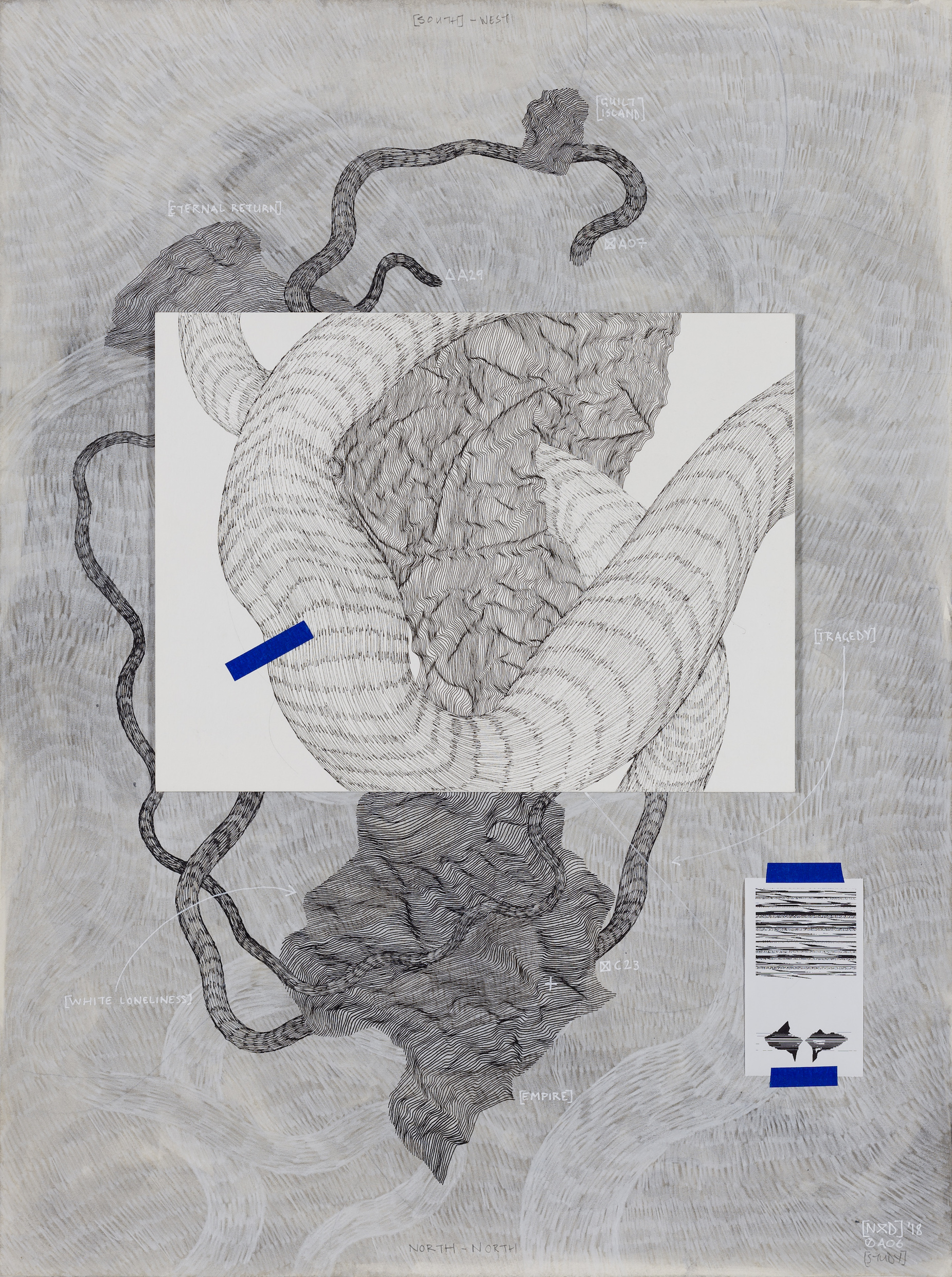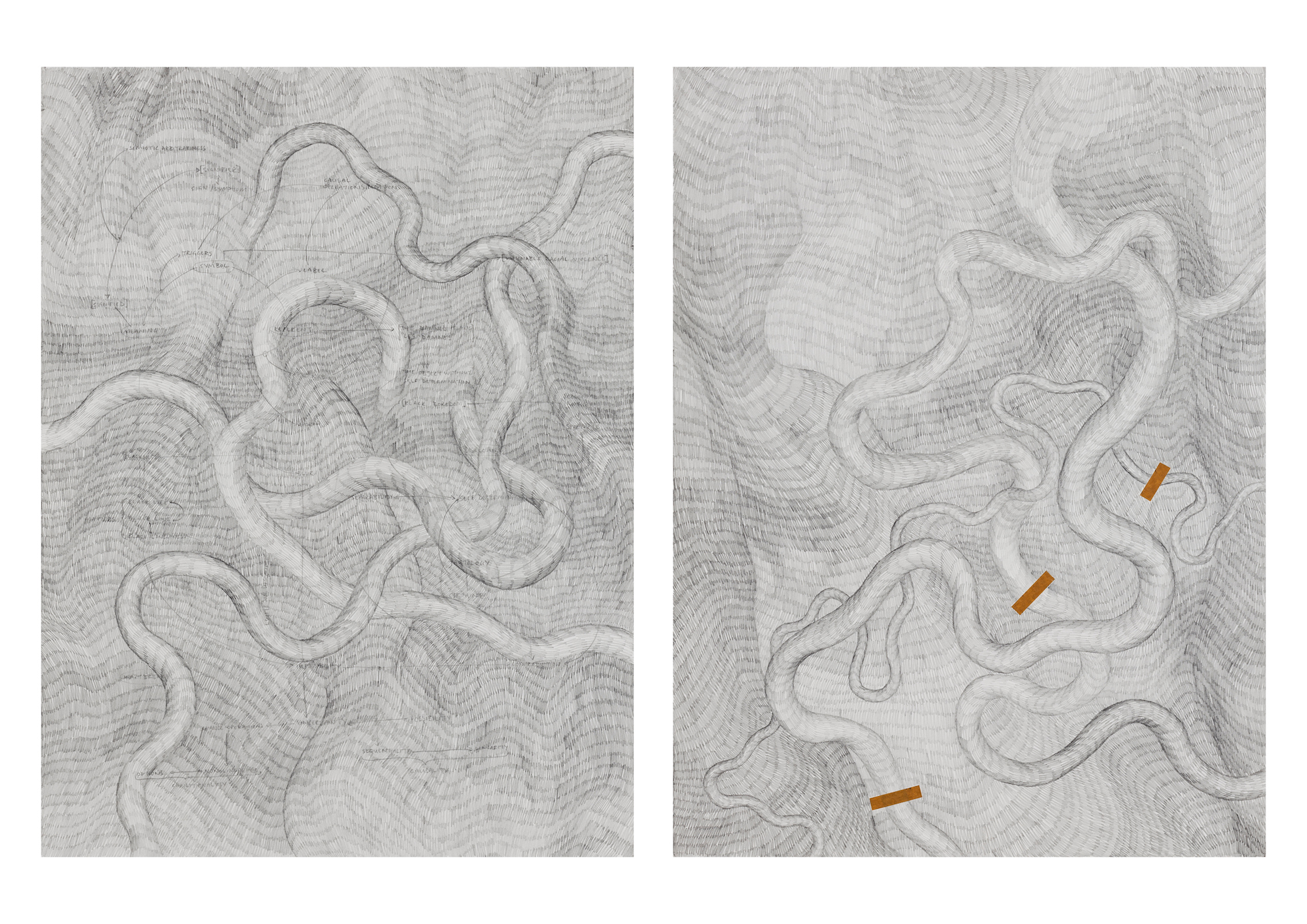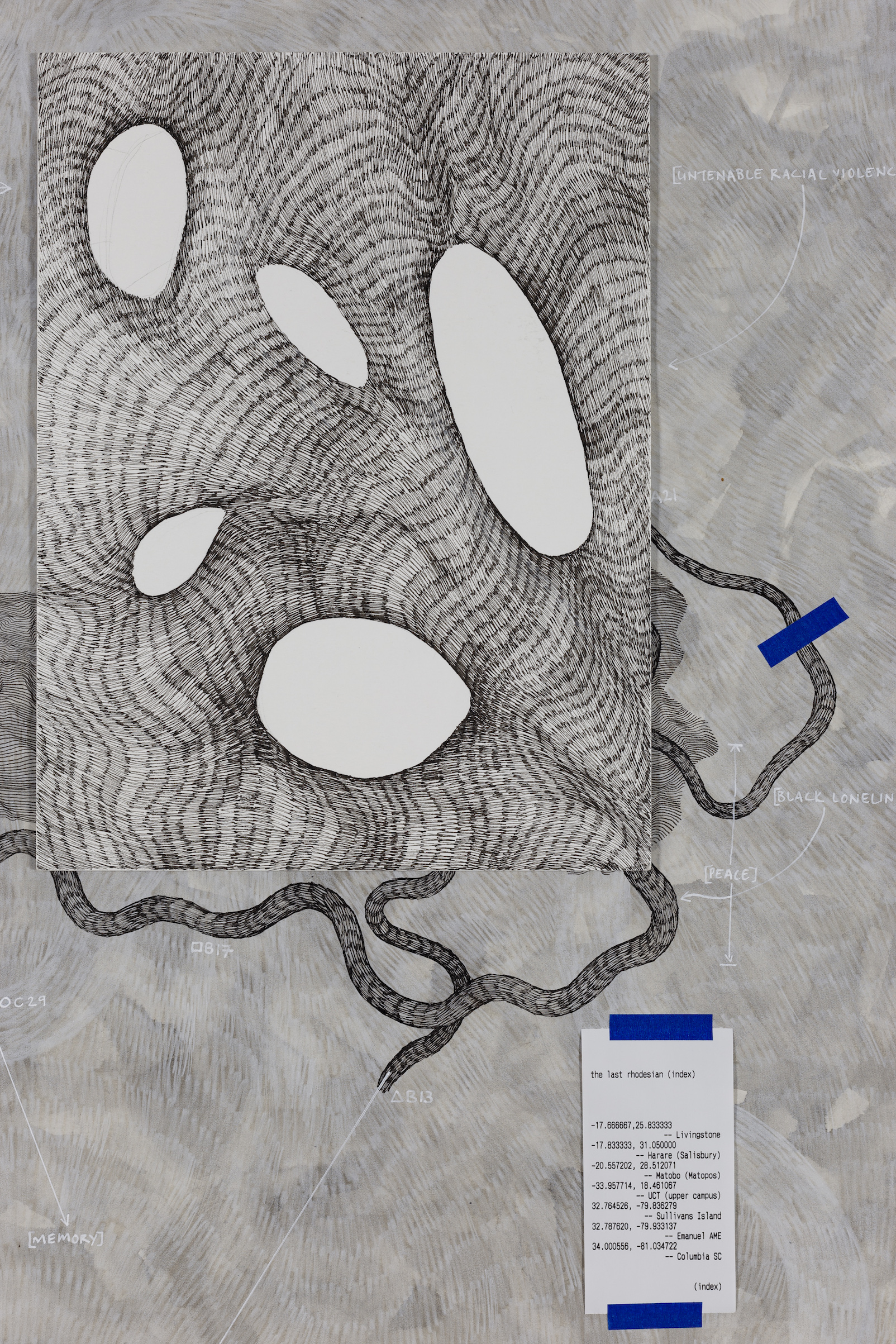What is the colonial wound you have to heal from? These are all the wounds infringed by patriarchy and racism, in all walks of life. Patriarchy and racism are two pillars of Eurocentric knowing, sensing, and believing.
– Walter Mignolo
Decolonial theorist Walter Mignolo speaks to the importance of having decolonial options as a means to address the pervasive historical legacy of colonisation. It is the consideration of multiple, rather than a singular approach, that allows for the careful contemplation of the complexities of these issues.
A wormhole loops in the multiplicity of options. Alternatives-to-now sketched in fine lines. Ruptured by blue – interjecting cross-sections of diagrammatic details. In Options, interdisciplinary artist Nolan Oswald Dennis continues an exploration of what he terms “a black consciousness of space” – an approach which considers both the material and metaphysical elements of decolonisation. Through the use of diagrammatic drawings, Nolan begins to map the contours of power as well as the relationship between space and time. The linear perception of time seems disrupted by the infinite-now. Central to the work is an invitation of transformation, a desire to heal.
When that happens, the decolonial wound is opened. Mignolo posits that, “healing is the process of delinking, or regaining your pride, your dignity, assuming your entire humanity in front of an un-human being that makes you believe you were abnormal, lesser, that you lack something.” Artistic expression can provide a platform to think-through-making in instances where language fails to encompass the complexities of ideas. Nolan’s work speaks to a desire to address this wound, rather than succumbing to one-dimensional rhetoric. However, the abstraction and visualisation of the issue provide more questions than answers. Nolan notes that, “the world we want is a world in which many worlds exist.” In the midst of this the process of healing is that of becoming a decolonial subject or learning to be.






















































